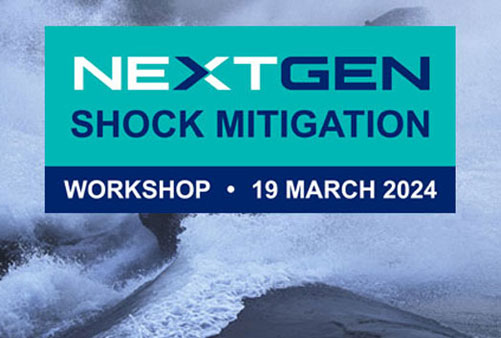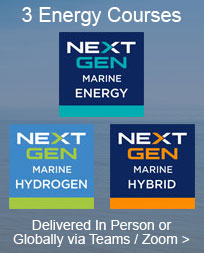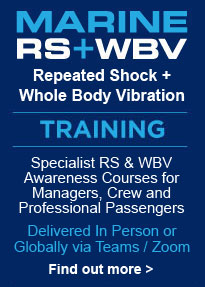NEXT GEN Shock Mitigation Workshop via Teams

16.02.2024

NEXT GEN Shock Mitigation Workshop via TEAMS
NEXT GEN Shock Mitigation Workshop is being run via Teams on 19 March 2024 from 13.00 to 17.00 (UK). This timing works well for people to join the group from Europe and United States.
This unique programme considers how different approaches to managing WBV (Whole Body Vibration) have evolved over the past decade. Especially how these efforts can be utilised to reduce the risk of injury for all people on boats.
Shock Mitigation Workshop via Teams - 19 March 2024 >
The overall theme is 'Managing Impact and Vibration in the Maritime Workplace'. Speed and waves are not the only factors, as impact and vibration are increasingly relevant issues in lower speed operations. Sessions will consider accident and injury reports.
NEXT GEN Workshop Lead, John Haynes, 'Identifying genuine industry best practice is essential to reduce the incidence of injuries. Operators and industry need to share lessons learned. This includes boat driver training in waves, managing time and speed expectations for different vessels and conditions - plus improved passage planning.'
A challenge for the builders of next generation planing craft is delivering platforms that balance performance with the physical demands on crew and passengers. Suspension seating can be part of the solution, but with a growing range of options it is important to match seat performance with vessel type and expected use.
The definition of shock mitigation is to make a violent collision or impact less intense. A shock mitigation strategy is essential for all craft that undertake open sea transits or operate in rough water. This includes rivers and estuaries with wind against tide conditions which can form short, steep waves.
It is important to understand the effects of both Repeated Shock (RS) and Whole Body Vibration (WBV). Accelerometers are increasingly being used to measure vertical impacts and vibration. Other areas requiring attention include the damaging effects of fore-aft and lateral accelerations, especially when combined into vector forces.
John Haynes added, 'I have personally asked a number of maritime organisations what are their most burning issues related to reducing injury and improving safety. Their responses have been used to develop this cutting edge programme.'
Presentations and dynamic discusions deliver a pactical view on the
opportunities and challenges faced by planing craft operations.
Technology providers share experience and solutions.
Professional networking for decision makers.
Further Information & To Register >

All images are copyright NEXT GEN Marine Ltd 2025 unless otherwise stated.
This does not exclude the owner's assertion of copyright over the material.











